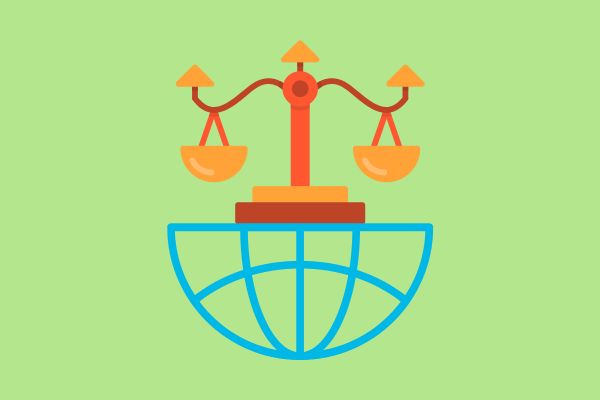
International law serves as the backbone of the global legal system, governing interactions between nations and shaping the conduct of states in the international arena. The establishment and development of international law are dependent on various sources, each contributing to the formation and recognition of legal norms at the international level.
Among the key sources of international law are the Statute of the International Court of Justice (ICJ) and Article 38(1) of the ICJ Statute, which enumerates four primary sources of international law.
The Statute of the International Court of Justice, adopted in 1945, is an essential instrument that governs the functioning and powers of the principal judicial organ of the United Nations, the International Court of Justice. It outlines the jurisdiction of the ICJ and provides guidance on the sources of international law that the Court should apply when settling disputes between states. While the ICJ Statute does not itself create new sources of law, it plays a crucial role in upholding and interpreting existing international legal norms.
Article 38(1) of the ICJ Statute outlines the sources of international law that the Court shall apply in deciding cases brought before it. These sources, in order of priority, are:
This refers to treaties or agreements concluded between states, establishing rules that are expressly recognised by the parties involved. International conventions can be general in scope, applying to a broad range of countries or specific, addressing particular issues between specific states. Such treaties are binding upon the parties that have ratified or acceded to them.
Customary international law emerges from the general and consistent practice of states, followed by them from a sense of legal obligation (opinio juris). When a particular practice becomes widespread and accepted as law by the international community, it gains the status of customary international law. Customary norms are binding on all states, regardless of whether they are parties to specific treaties.
These are fundamental legal principles common to most legal systems across the world. While not limited to specific treaties or practices, these principles are considered inherent in the development of international law and serve as guiding norms in resolving disputes between states.
The ICJ also considers judicial decisions of international and domestic courts, as well as the writings of distinguished legal scholars and experts (publicists). While not binding on the Court, these sources serve as subsidiary means for interpreting and determining rules of international law.
It’s important to note that Article 38(1) is not an exhaustive list of sources. Other sources, such as the UN General Assembly resolutions, decisions of international organisations and the practice of specialised international tribunals, can also contribute to the formation and development of international law.
The sources of international law provide the foundation for a rules-based international order, fostering cooperation, stability and justice among nations. The Statute of the International Court of Justice and Article 38(1) play a pivotal role in guiding the application of these sources in resolving disputes and shaping the evolution of international law. As the world continues to face new challenges and opportunities, these sources will remain instrumental in ensuring a coherent and principled approach to global governance and diplomacy.